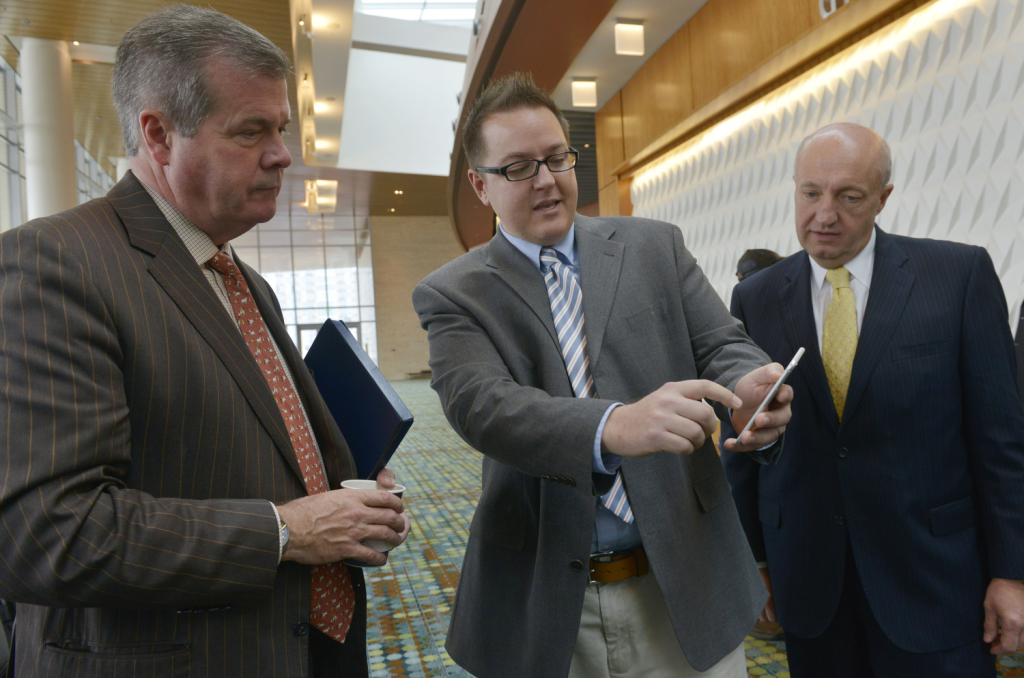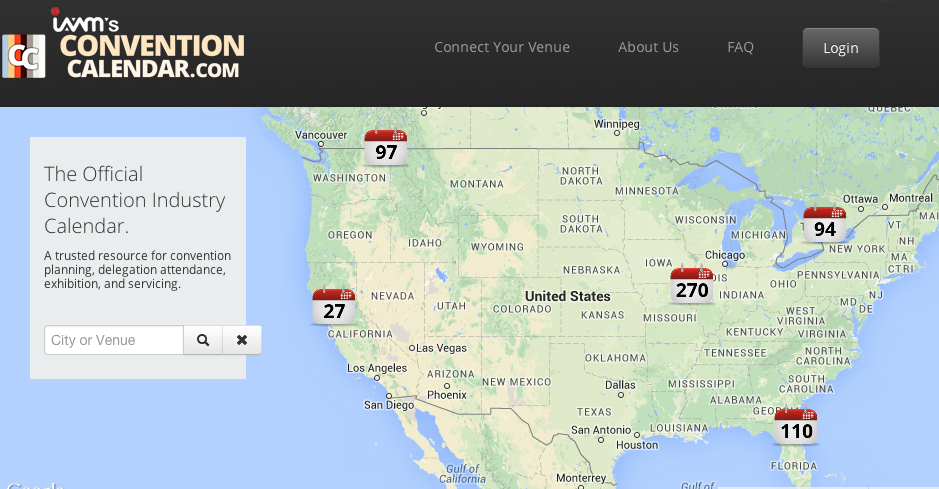Stress Now, Act Out Later
November 14 is Loosen Up Lighten Up Day. It’s a real day. The Internet doesn’t lie. On this day, you’re encouraged to takes things a little slower, relax, unwind, and find some balance. And if you’re a manager, you may want to urge employees to seriously take a mental break, because stress has a way of showing up later as counterproductive work behaviors.
“People don’t just respond immediately with these deviant behaviors,” said Kevin Eschlemen, an assistant professor of psychology at San Francisco State University. “They may also have a delayed response that isn’t caught by the organization. That means the organization is not taking into account long-term costs associated with these delayed behaviors.”
Eschelman and his colleagues wanted to know how and when employees handled workplace stress, so they surveyed workers in a variety of fields three times over six months. They asked them about stress at work and if they engaged in counterproductive behaviors. As believed, increases in stress caused immediate negative behaviors. However, employees who didn’t exhibit immediate negative behaviors did so weeks or months later.
“Maybe you don’t have the opportunity to engage in these deviant behaviors right away, and you want to wait until no one is around,” Eschleman said. “Or maybe you think you can cope right away, but then down the road you end up engaging in these behaviors.”
The researchers found that the delayed reactions were more pronounced in employees considered more agreeable or conscientious by their employers and co-workers. Eschleman suggests that these employees have more resources available at first to help them cope with increased stress, such as supportive friends, money, or benefits. However, even these employees submit to stress.
“Your personality might influence how you try to cope initially, but if things are bad for a really long time, it doesn’t matter what your personality is,” Eschleman said. “At the end of the day, you’re going to do these deviant things.”
Knowing that, you may as well take time today to unwind. Your future self will thank you.
(photo credit: HikingArtist.com via photopin cc)
IAVM Officially Launches ConventionCalendar.com
ConventionCalendar.com is the first official Convention Center Calendar of Events. It was announced “Live” in Vancouver, British Columbia, during the International Convention Center Conference (ICCC) in October.
The beta program is now online and features several notable launch partners, including the world’s second largest convention center—Orange County Convention Center. Also on the site are the Spokane Convention Center, the Santa Clara Convention Center, the St. Charles Convention Center, and the Buffalo Niagara Convention Center. Several other convention centers have signed on and are uploading to the website.
“We are seeing an increase in the number of customers that desire to work directly with our venues, and the Convention Calendar program addresses this critical need,” said IAVM President and CEO Vicki Hawarden, CMP, during the ICCC panel discussion “Adapting To and Overcoming New Challenges.”
ConventionCalendar.com is being broadcast around the world to subscribing event planners, local stakeholders, convention sales staff, and exhibitors.
Blue, Red, and….Greening the Holidays
The holidays are full of cheer, joy, family, and trash. Yes, tons of trash. According to the Environmental Protection Agency, Americans throw away 25 percent more trash during the Thanksgiving to New Year’s holiday period than any other time of year. The extra waste amounts to 25 million tons of garbage, or about one million extra tons per week. This trash includes wrapping paper, food waste, packaging, decorations, and old “toys” that are dumped for new ones every year.
The holiday season is a great way for venues to take action and save the holidays by making them greener. Instead of using a real tree, use a fake one that can be stored and reused each year. Also, find decorations that can have multiple purposes and reused in different fashions for a new look from year to year. Facility managers can even encourage employees to bring in unused items from home that they can use to help decorate the facility.
When using holiday lights, remember to use LED and energy efficient lights. LED lights consume 80 percent to 90 percent less energy and last up to 100,000 hours versus 3,000 hours for incandescent. Also, if you set them on a timer, you can save energy when the facility is vacant. And remember to be gentle when the season is finally over so you can pack them away to be used over and over again.
Another way to be more green this holiday season is to send electronic cards to vendors, sponsors, co-workers, and all your important business contacts, instead of mailing cards that get tossed in the trash.
Finally, encourage holiday party clients to be more environmentally friendly by donating leftover food from parties, recycling wrapping paper, and reusing decorations.
For more tips on going green this holiday, visit: http://www.epa.gov/epahome/hi-winter.htm or http://money.cnn.com/2010/12/16/news/economy/holiday_trash/. So instead of a “Blue Christmas,” how about making it a Green one?!
Music City Center Unveils Its New Wayfinding App

Mayor Karl Dean; Jules White, an assistant professor at Vanderbilt and developer of the Music City Center wayfinding app; and IAVM member Charles Starks, president and CEO of the Music City Center, use the Music City Center wayfinding app.
Getting lost is a thing of the past for visitors in Nashville’s Music City Center (MCC) thanks to its new wayfinding app.
“This new technology will change the way visitors experience this building,” Nashville Mayor Karl Dean said. “It’s a big building, and getting turn-by-turn directions on a phone will make it easier for visitors to get where they need to go. This wayfinding app also highlights Nashville’s emergence as a tech city and a place where entrepreneurs and Web developers feel empowered to come up with tools to make life easier and better.”
The app uses beacons installed in the building’s walls to direct users from point A to point B in the venue. At 1.2 million square feet, the MCC is the largest building in the country with an indoor wayfinding system that uses beacon technology. It is available as a free app for iPhone and Android users.
The app was created by Jules White, an assistant professor of electrical engineering and computer science at Vanderbilt University—along with a team of Vanderbilt students as a part of a class project. The public/private partnership between the MCC and Vanderbilt’s Institute for Software Integrated Systems led to the development of the wayfinding technology and the launch of White’s new Nashville-based startup company, Ziiio.
The MCC wayfinding system functions like indoor GPS and is the first of its kind to clearly show users turn-by-turn how to find where they want to go inside a building using 500 photos. The machine-learning approach that Ziiio uses allows the MCC to rely on fewer beacons. Currently, 62 beacons have been deployed in the convention center. These beacons were donated by BKON, a local manufacturer of the iBeacon hardware.
A video demonstration is at: https://drive.google.com/file/d/0B_HZ5vVmyi8kZ1ZIRjkxQl9WeEE/view?usp=sharing.
Kim Stone Inducted into N.C. Hall of Fame for Journalism
 Congratulations to IAVM member Kim Stone, executive vice president and general manager of the AmericanAirlines Arena in Miami, Florida. She was recently inducted into the University of North Carolina’s Hall of Fame in Journalism.
Congratulations to IAVM member Kim Stone, executive vice president and general manager of the AmericanAirlines Arena in Miami, Florida. She was recently inducted into the University of North Carolina’s Hall of Fame in Journalism.
Stone has been with the Miami Heat organization since the mid-1990s and has worked in several capacities, from media relations to director of operations to her current role as general manager.
Prior to joining the Heat, Stone was the sports publicity director for the University of Texas Women’s Athletics Department from 1992-94. Before that, she was an assistant in the University of Miami’s sports information office.
Stone received the 2013 Women of Influence award from Venues Today magazine, and she was honored in 2009 by the South Florida Business Journal in its inaugural class of Influential Business Women.
Stone graduated with a degree in journalism and public relations from the University of North Carolina, where she assisted in the sports information office. In 2003, she graduated with honors from the University of Miami with a master’s degree in international business administration. She is formerly an adjunct professor in the St. Thomas University Masters of Sports Administration program and serves as a board member of the University of Miami’s President’s Council, Miami Downtown Development Authority, and is currently president of the Florida Facility Manager’s Association.
Congratulations, Kim!
(Image: NBA.com)
Do you want to receive a Front Row News weekly digest?
Categories
- Allied (861)
- Architecture (147)
- Arenas (747)
- Career (897)
- Convention Centers (895)
- Education (623)
- Events (1,544)
- Food & Beverage (193)
- Foundation (113)
- Guest Experience (1,496)
- Industry News (2,270)
- Leadership (1,888)
- Marketing (150)
- Membership (2,000)
- Music (213)
- Performing Arts Centers (454)
- Professional Development (409)
- Research (127)
- Safety & Security (442)
- Sports (763)
- Stadiums (608)
- Student (159)
- Technology (516)
- Ticketing (92)
- Touring (82)
- Trends (364)
- Uncategorized (742)
- Universities (218)
- Video (25)
- Young Professional (198)
Twitter Feed
- Twitter feed loading
Recent Posts
- Seattle Convention Center Announces Strategic Leadership Appointment and Growth Initiatives for 2026
- Peggy Daidakis Humbly Made Convention Center History
- Welcome to Our Newest Members
- New Member Benefit! IAVM Partners with Advantage Training to Elevate Staff Readiness and Guest Experience
- Charlotte Convention Center Welcomes Two New Leaders to its Management Team
Categories
- Allied
- Architecture
- Arenas
- Career
- Convention Centers
- Education
- Events
- Food & Beverage
- Foundation
- Guest Experience
- Industry News
- Leadership
- Marketing
- Membership
- Music
- Performing Arts Centers
- Professional Development
- Research
- Safety & Security
- Sports
- Stadiums
- Student
- Technology
- Ticketing
- Touring
- Trends
- Uncategorized
- Universities
- Video
- Young Professional
Archives
- December 2025
- November 2025
- October 2025
- September 2025
- August 2025
- July 2025
- June 2025
- May 2025
- April 2025
- March 2025
- February 2025
- January 2025
- December 2024
- November 2024
- October 2024
- September 2024
- August 2024
- July 2024
- June 2024
- May 2024
- April 2024
- March 2024
- February 2024
- January 2024
- December 2023
- November 2023
- October 2023
- September 2023
- August 2023
- July 2023
- June 2023
- May 2023
- April 2023
- March 2023
- February 2023
- January 2023
- December 2022
- November 2022
- October 2022
- September 2022
- August 2022
- July 2022
- June 2022
- May 2022
- April 2022
- March 2022
- February 2022
- January 2022
- December 2021
- November 2021
- October 2021
- September 2021
- August 2021
- July 2021
- June 2021
- May 2021
- April 2021
- March 2021
- February 2021
- January 2021
- December 2020
- November 2020
- October 2020
- September 2020
- August 2020
- July 2020
- June 2020
- May 2020
- April 2020
- March 2020
- February 2020
- January 2020
- December 2019
- November 2019
- October 2019
- September 2019
- August 2019
- July 2019
- June 2019
- May 2019
- April 2019
- March 2019
- February 2019
- January 2019
- December 2018
- November 2018
- October 2018
- September 2018
- August 2018
- July 2018
- June 2018
- May 2018
- April 2018
- March 2018
- February 2018
- January 2018
- December 2017
- November 2017
- October 2017
- September 2017
- August 2017
- July 2017
- June 2017
- May 2017
- April 2017
- March 2017
- February 2017
- January 2017
- December 2016
- November 2016
- October 2016
- September 2016
- August 2016
- July 2016
- June 2016
- May 2016
- April 2016
- March 2016
- February 2016
- January 2016
- December 2015
- November 2015
- October 2015
- September 2015
- August 2015
- July 2015
- June 2015
- May 2015
- April 2015
- March 2015
- February 2015
- January 2015
- December 2014
- November 2014
- October 2014
- September 2014
- August 2014
- July 2014
- June 2014
- May 2014
- April 2014
- March 2014
- February 2014
- January 2014
- December 2013
- November 2013
- October 2013
- September 2013
- August 2013
- July 2013
- June 2013
- May 2013
- April 2013
- March 2013
- February 2013
- January 2013
- May 2012
- March 2012
- December 2011
- November 2011
- October 2011
Recent Comments
- Frank Bradshaw, Ph.D., CVE on John Meyer, CVE, a Tireless Advocate of Certification for Venue Professionals, Has Died
- Neil Sulkes on Hilary Hartung, Friend to Many in Venue Marketing, Has Left Us
- Jason Parker, CVE on The Devastation of Hurricane Helene and How We Can Support One Another
- Larry Perkins on Touhey Testifies Against Speculative Ticketing Before Congressional Subcommittee
- Peter Secord on Major Players for Planned Elkhart Amphitheater Were in the Mix at VenueConnect



